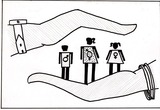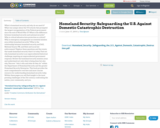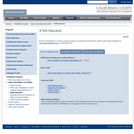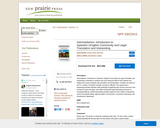Short Description:
This first and only university textbook of human security, intended as an introductory text from senior undergraduate level up, and includes chapters by 24 authors that encompass the full spectrum of disciplines contributing to the human security field. It is based on the four-pillar model of socio-political security, economic security, environmental security and health security. The chapters include learning outcomes, extension activities, and suggested readings; a comprehensive glossary lists key terms used throughout the book. This textbook can be used in courses on international studies and relations, political studies, history, human geography, anthropology and human ecology, futures studies, applied social studies, public health, and more.
Long Description:
This first and only university textbook of human security is intended as an introductory text from senior undergraduate level up, to be used in courses on international studies and relations, political studies, history, human geography, anthropology and human ecology, futures studies, applied social studies, public health, and other fields.
Its second, thoroughly revised and updated edition will represent again in a coherent fashion the field of human security and will set it apart from more traditional models of security. Its approach is again deliberately multidisciplinary and transcultural. In addition to a thorough overview of the human security concept, the chapters address problems and opportunities in international law, politics, international relations, human ecology, ethics, law enforcement, development aid, human rights, and public health. The reader is also introduced to specific human security regimes that address human rights violations, peace building and conflict resolution, as well as global environmental governance.
The book encourages a vision of the future that acknowledges the certainty of change, extrapolates significant current trends, and questions the values, beliefs and ideals that tend to inform some dominant notions of development. Because of its transdisciplinary approach, the book will appeal to a very wide range of interests at the post-secondary/tertiary level. It will be of particular interest to undergraduate and graduate students and researchers, and also to educators from various disciplines in the natural sciences, social sciences, and humanities.
Word Count: 304560
ISBN: 978-1-77420-077-3
(Note: This resource's metadata has been created automatically by reformatting and/or combining the information that the author initially provided as part of a bulk import process.)
















